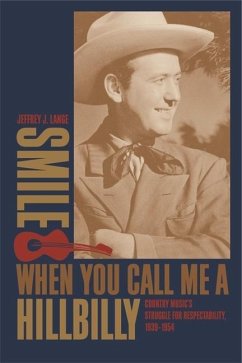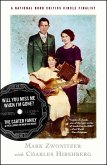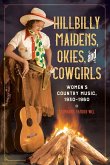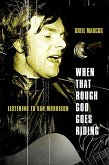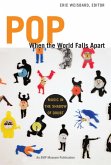Today, country music enjoys a national fan base that transcends both economic and social boundaries. Sixty years ago, however, it was primarily the music of rural, working-class whites living in the South and was perceived by many Americans as "hillbilly music." In "Smile When You Call Me a Hillbilly, Jeffrey J. Lange examines the 1940s and early 1950s as the most crucial period in country music's transformation from a rural, southern folk art form to a national phenomenon. In his meticulous analysis of changing performance styles and alterations in the lifestyles of listeners, Lange illuminates the aculturation of country music and its audience into the American mainstream. Dividing country music into six subgenres (progressive country, western swing, postwar traditional, honky tonk, country-pop, and country-blues), Lange discusses the music's expanding appeal. As he analyzes the recordings and comments of each of the subgenre's most significant artists, including Roy Acuff, Bob Wills, Bill Monroe, Hank Williams, and Red Foley, he traces the many paths the musical form took on its road to respectability. Lange shows how along the way the music and its audience became more sophisticated, how the subgenres blended with one another and with American popular music, and how Nashville emerged as the country music hub. By 1954, the transformation from "hillbilly" music to country music was complete, precipitated by the modernizing forces of World War II and realized by the efforts of promoters, producers, and performers.
Hinweis: Dieser Artikel kann nur an eine deutsche Lieferadresse ausgeliefert werden.
Hinweis: Dieser Artikel kann nur an eine deutsche Lieferadresse ausgeliefert werden.

